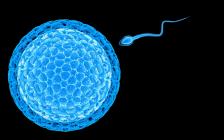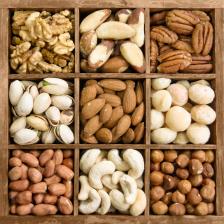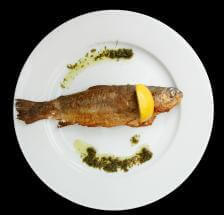How Nutrition Affects Male Fertility
The second in a two-part series on enhancing ferility with nutrition. This week, the focus is on the guys.
Monica Reinagel, MS, LD/N, CNS
Listen
How Nutrition Affects Male Fertility

First, I want to reiterate something I said last week: Most of this information is gleaned from observational and not experimental data. In other words, we’re looking at the associations between various nutritional factors and male fertility. We don’t know for certain that adopting these habits improves fertility. However, seeing as all of them are consistent with overall good health, there certainly doesn’t seem to be any harm in trying.
Two Big Factors in Male Fertility
Get off the couch and hit the gym to enhance the quantity and quality of your little swimmers.
There’s an old saying that a gentlemen should never ask a lady about her age or her weight. If that’s true, fertility doctors are no gentlemen! As I talked about last week, both factors play a big role in a woman’s fertility. But guess what, guys? Both of these factors also apply to you.
Unlike women, who reach a hard-stop at menopause, men can continue to father children into old age. However, sperm quality– in terms of both numbers and friskiness, or motility– starts to decline around age 35. You can’t turn back the clock, of course, but you should be aware that delaying parenthood while you pursue other goals may make it a little harder for you to start a family.
Regardless of your age, sperm quality also declines when you are overweight. This is perhaps related to the dual finding that guys who exercise more have better sperm quality and those who watch more TV have lower sperm counts. So, dads-to-be, starting a family may require more than just showing up for the critical act. Get off the couch and hit the gym to enhance the quantity and quality of your little swimmers.
Get-Fit Guy has more on how exercise can help you boost your reproductive capacity in his episode 6 Ways to Increase Testosterone With Exercise.
Nutritional Factors that May Affect Male Fertility
As far as nutrition is concerned, there are a few nutrients that you might want to pay special attention to….

Folate. Women who are pregnant and trying to become pregnant are usually advised to take a folic acid supplement. Not only does folic acid protect against serious neural tube defects in the developing fetus but it seems to enhance your chances of getting pregnant in the first place. And the same appears to be true for men: Higher folate intakes are correlated to better sperm quality. As always, I favor food sources over supplements and the best food sources of folate are spinach and other dark leafy greens, Brussels sprouts, and asparagus.
Antioxidants. Sperm are exquisitely sensitive to oxidative damage. In fact, oxidative stress may account for up to 80% of male subfertility. And what’s the antidote to oxidative stress? You got it: antioxidants. Multiple studies have shown that increasing your intake of antioxidants can improve sperm quality and help couples get pregnant. Once again, you could do this with supplements but I think you’d be better off doing it with food. Fruits, vegetables, nuts, legumes and other whole foods provide a broad-spectrum of antioxidant nutrition—and loading up on these healthy foods will also help you maintain a healthy body weight.
Two Parents, One Dietary Prescription

Just to refresh your memory, a Mediterranean diet pattern is characterized by a high intake of vegetables, nuts, legumes, olive oil, fish, and whole grains and a low intake of meat, refined grains, and other processed foods. In addition to enhancing your odds of getting pregnant, a Mediterranean diet is also associated with lower risks of heart disease, dementia, and obesity. Sounds like a great way to start—and keep—a healthy family!
If you have questions or comments, feel free to post them below or on the Nutrition Diva Facebook page. I always love to hear from you.
Sperm and egg and other images courtesy of Shutterstock.

